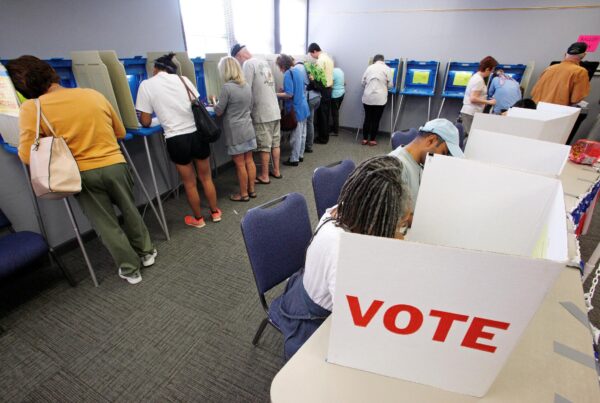- The power to redraw district lines in Arkansas currently belongs to elected officials.
- A proposal would put redistricting power in the hands of citizens instead.
- The proposed new system for redistricting would ensure a fair process.
- A technicality is holding the redistricting proposal up in court, but a decision is expected soon.
People should pick their politicians, and not the other way around. At least that’s how the saying goes. A proposed amendment would put Arkansas citizens in charge of mapping district lines for both our state- and federal-level lawmakers. This change could give Arkansas voters a better chance at making their voices heard.
But whether we will get to vote on that proposal for nonpartisan redistricting in Arkansas remains to be seen.
Laws currently in place assign all district map-making powers to elected officials. The Arkansas governor, secretary of state and attorney general redraw district lies for the state representatives and state senators we send to Little Rock. The Arkansas Legislature draws district lines for the four U.S. representatives we send to Washington, D.C.
And that’s where problems creep in. Asking elected officials with political interests and working relationships with lawmakers to redraw those lawmakers’ district maps opens up opportunities for abuse.
When partisan groups shape our districts, gerrymandered boundaries specifically formulated to favor one political party over another can result. Lobbyists also try to get in on the game, exerting pressure to draw district lines that favor the politicians sympathetic to their causes. Both Democrats and Republicans have been guilty of drawing district lines that keep their own party in power. Nonpartisan redistricting in Arkansas would benefit both parties.
Under the proposed amendment to the state constitution, a commission of nine citizens – three Democrats, three Republicans and three Independents – would take over the job of mapping out districts for state representatives, state senators and U.S. representatives (U.S. senators represent the state as a whole and therefore don’t have district lines).
The amendment for the November 2020 ballot stipulates that commission members can’t have been elected officials, lobbyists or officers for any political party within the last five years. A trio of retired judges picked by the chief justice of the Arkansas Supreme Court would screen applications for commission hopefuls, winnowing the pool to 40 candidates in each of the three categories (Democrat, Republican, Independent). The governor and party leaders in the Arkansas Senate and the Arkansas House would each be allowed to strike up to two candidates in each category. The remaining names would go into a lottery, from which three members from each category would be randomly chosen.
A group tried to get similar amendment on the ballot in 2018, but struggled to get Arkansas Attorney General Leslie Rutledge to accept their ballot language in time.
Rutledge and state board of election commissioners all approved the ballot language in time this go-round. But a new legal obstacle threatens to keep independent redistricting off the Arkansas ballot.
At issue is the paperwork. The group hired to collect signatures to put the amendment on the ballot conducted background checks on its workers as required. But language on the document they filed to certify those background checks is in dispute. A judge is expected to rule on the language question within weeks, either clearing the way for independent redistricting to go before voters or knocking it out of the running for 2020.
District lines get redrawn only every 10 years when new census data becomes available. That means if the amendment doesn’t get on the ballot in November, our current redistricting system stays in place until at least 2030.
What do you think? Take the survey on independent redistricting in Arkansas.



